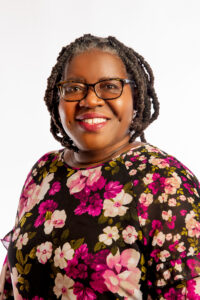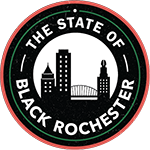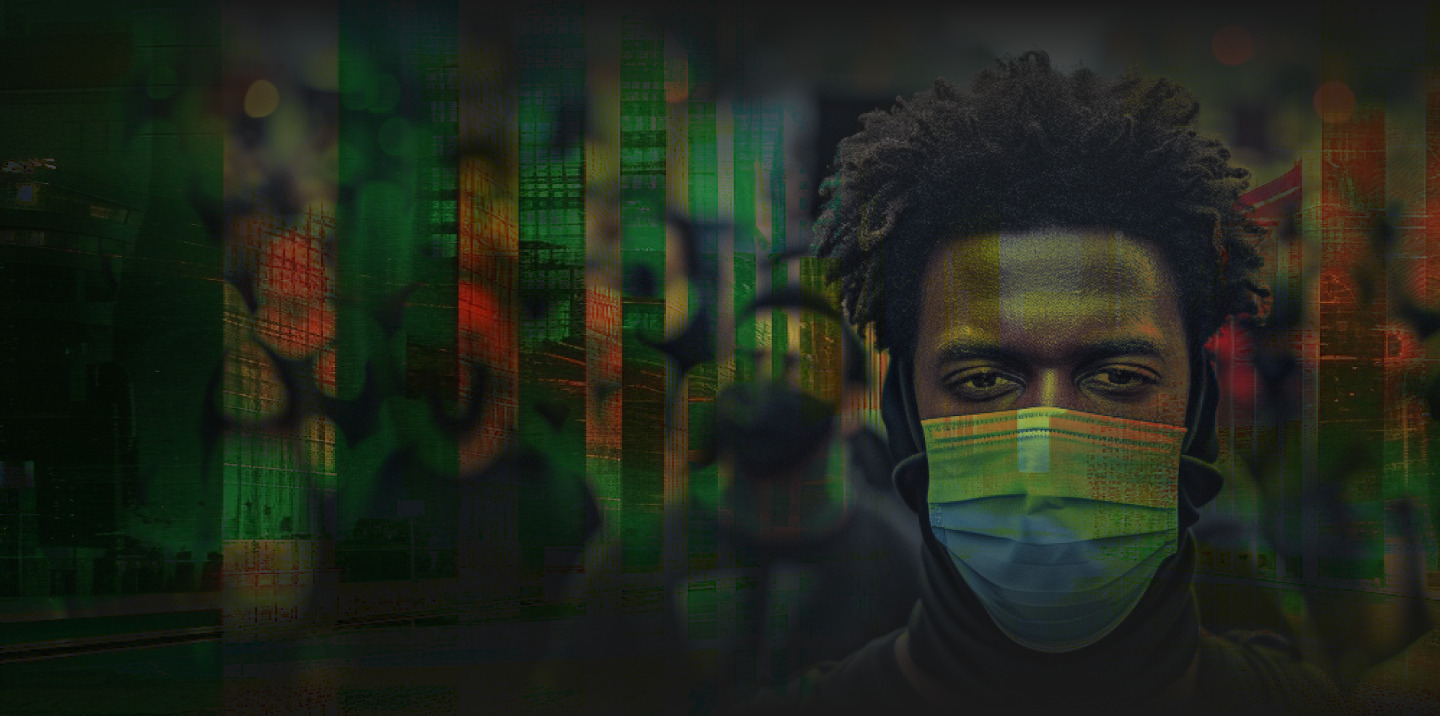 The Exacerbation of Racial Disparities Throughout the COVID-19 Pandemic
The Exacerbation of Racial Disparities Throughout the COVID-19 Pandemic
We often hear that COVID-19 “shone a light on inequities,” as mentioned by Dr. Anthony Fauci. Contrary to popular belief, I would say that the light was already there. Many in America just chose not to acknowledge it. What’s different is that America is now embarrassed by it.
What has come with this age of instant information is the ability to see what we tried to ignore. We now have even more data showing clear disparities between Black and Latino people when compared to White people. We continue to peel back the onion of frank racism driving the health disparities we see in Rochester. We peeled layers with Unequal Treatment in 2003 – feeding the demand to “prove” that inequities existed for Black people in this country, but the status quo only worsened through the pandemic. We know that racism, not insurance status, is to blame for disparity. Sure, ZIP code has an impact, but racism created neighborhood and zip code segregation.
We saw blatant discrepancies in the distribution of resources during the pandemic. When we hit the streets to educate and provide clinical assessments, we found that many Black households did not even own a thermometer. Yet, the most vulnerable residents were sent home from emergency rooms despite being very ill. Meanwhile, there were privileged, predominantly white residents with automatic blood pressure cuffs, pulse oximeters, and digital no-touch thermometers. Nationally, we saw whites with access to testing while Blacks did not have such access. Unless you were an NBA football player or an Olympian, with a dome of protection to benefit organizational profits, then you [Black people] were on your own, left to be hospitalized and possibly die at disproportionate rates.
I am sure others will discuss how aspects of digital advances have driven another wedge between the haves and have-nots, but I need to call out the advances in telehealth during COVID-19 which highlighted these disparities. We knew that the equipment and bandwidth for Wi-Fi wasn’t equal across the country. Local research projects emerged to prove that poor people on Medicaid wanted telehealth options.
COVID-19 reinforced the understandable mistrust Black people have of our health systems. We aren’t paranoid or crazy. Available data, such as that published by Common Ground Health, corroborated that Black people aren’t treated equitably, which manifested in inequitable health outcomes. COVID-19 truly made the assertion known to a wider swath of our community.
The combination of COVID-19, social media, and questionable national leadership made for an interestingly scary mixture that drove people to trust social media influencers without scientific training more than scientists and health professionals when seeking medical advice. However, it is frightening to realize that so much we know and practice in medicine is without scientific basis, and often steeped in racism. This drives home the importance of bringing in Black professionals who have their eyes wide open and an understanding of our history.
Lack of Community
We speak of “community” in a monolithic way, which we know doesn’t make sense but we continue to do so. Our community appears to be fractured and unable to move forward together. Even within the Black community, there are so many communities (with a small “c”). Those who were born here. Those who were not. Those who have an advanced degree. Those who do not. There seems to be a need for one Black community to be seen as superior to another Black community. We cannot afford to do this! Like separate drops, we must congeal to form the clot that will stop the bleeding that comes from the cuts and gouges of racism and discrimination in Rochester.
As Black people, we are well-practiced at being the voice of compromise and collaboration, often to our detriment. We saw the gains of the Civil Rights movements in the 1960s actually benefit Black people very little, while white women and others benefitted greatly and disproportionately. When we formed the Black Physicians Network of Greater Rochester, Drs. Gina Cuyler, Nana Duffy, and I immediately vowed we would care for any medical student from underrepresented groups. We felt the Latino medical students and Indigenous medical students were our responsibility. I truly wonder if that would have happened for Black medical students with other groups at the helm. This spirit is what is needed to bring together our Black Rochester community.
I often think of Isabel Wilkerson’s Caste, because somehow the darkest of us always finishes last, even when we’re reaching out to help everyone else. This is across ethnic groups. Sometimes Black people from other countries attempt to differentiate themselves from American-born Black people. In medicine, residency and faculty positions are often filled with Black people from other countries, and the institution feels they can pat themselves on the backs for working towards equity. They contribute to the division of our community, which we must negate.
We find it important to keep somehow differentiating ourselves one from another – e.g., professionals vs. non-professionals (who is to judge?), urban vs. suburban, etc. Meanwhile, white people are comfortable and assured that we will not work together to achieve equity. It’s time to surprise them, and come together as one community, don’t you think? We have the brilliance, the resourcefulness, and the creativity in our community to do just that so we have to figure out how to collaborate rather than compete.
Urban vs. Suburban Black Experience
There is not just one “Black experience”! One person’s urban experience is not the same as another person’s urban experience. I can live on East Avenue – an urban experience, which is different than Hudson Avenue – another urban experience. Our suburban brothers and sisters may have chosen to leave impoverished, under-resourced areas in the city in exchange for an isolating, potentially de-culturalizing experience (I might have made up that word). All of a sudden, you have no “cred.” That’s ridiculous!
When I was a small child, my parents left Northeast Washington, D.C. for the Maryland suburbs in Prince George’s County. I grew up in the suburbs in an all-Black neighborhood. When I would go to DC, I was teased for living the “country” life a few minutes away. When I was home in the suburbs, I would be teased for various things – being too dark-skinned, talking “white,” doing my homework… you name it. It goes to the root of human beings on this earth. We are desperate to prove that we are better than somebody – anybody else. We have learned very well from the dominant culture how to do this.
If we cannot get ourselves together and build on our similarities, we will be stagnant as Black people. Suburban Black women are just as likely to suffer morbidity and mortality as urban Black women, and all Black infants are three times as likely to die in the first year of life, as compared to white infants. Whether we live in the suburbs or not, our story intertwines with life in the city. The borders are porous, and drugs, guns, and sexually transmitted diseases riddle our communities. Racism follows us from the “fatal crescent” to Pittsford. We have to strategize together to devise a cohesive, well-planned fight for health equity. It takes the whole band to orchestrate this revolution – not just the electric bass and the saxophone, but the violin and piccolo too.
Excitement About New Black Leadership
Many of us were forced to survive by staking out our territories, fiercely building like a beaver on a river. Now we can take a collective breath and think about the Black community as a whole. We can weave the complex, important narrative understanding of our interdependence. It had previously taken the dominant culture to put financial stamps of approval on combined work, but now we have leaders who can do it themselves. Will the reins that govern us stop us? I pray not.
The combination of preparation, creativity, and brilliance combined with resources and an ear to the streets puts us in the position to be the change we want to see. As we pour dollars into our community, how will we keep each other active and strong so that Black people may actually reap the benefits?
It is easy to get buried in the day-to-day pressures of running our respective organizations, so we must intentionally keep one another abreast of our needs, resources, wins, and losses. We need to build each other up, not tear one another down in fits of jealousy and insecurity. We must celebrate and elevate one another. We must lift as we climb. We can’t let artificial “lists” and accolades distract us from the work.
We need official, unofficial, known, and unknown community leaders to join forces if we want an improved State of Black Rochester in 2034 and beyond.

